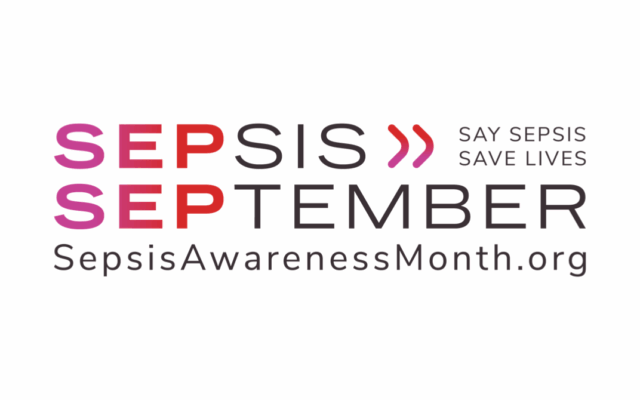
COVID Vaccine Q&A with Dr. Liston
Below, Dr. Liston answers some of the most common questions regarding the COVID-19 vaccine.
A lot of people are concerned about getting the COVID vaccine. Why is the vaccine such an important part of getting back to pre-COVID life?
As a reminder, regular vaccines like tetanus and whooping cough are one of the most important ways to stay healthy, both individually and at the population level. In recent years, we’ve seen clusters of measles, for example, amongst children who aren’t vaccinated. COVID vaccination takes on an especially important role because of how much of the population is infected, and how many hospitalizations and deaths there have been. In each surge of disease, like there is now, hospital systems have been at risk of being overwhelmed.
If someone has had COVID, do they need to get the vaccine?
Reinfection is possible. I’ve seen patients who were infected months ago and now have new infection. We don’t have enough data to say how well or how long this protection lasts, so it is recommended that people who have had COVID get vaccinated for that extra protection.
Some people feel that with how quickly the vaccine came out, there was a rapid nature to it, it wasn’t really researched or well understood. Is this true?
There are many reasons why this speed was possible. The technology for mRNA vaccines was developed almost 20 years ago when the MRSA outbreak occurred. We didn’t need vaccines then, but it was technology that we had available. Then Chinese scientists identified the genome to this virus early on and they were able to share that with scientists worldwide who were really invested in this. We saw both the government and private sector who had a lot of time and energy dedicated to it. It was also really easy to recruit volunteers. Because of how widespread the illness is and how contagious it is, we didn’t need much time to prove that it was effective. Also, generally the development of a vaccine occurs long before the manufacturing begins, but they were doing both at the same time, so as soon as it was approved it was able to be distributed.
If I’ve been vaccinated, why do I still need to wear a mask when I’m inside?
We were certainly hoping this wasn’t going to be the case, and months ago when our counts were so low, we did start to feel comfortable being unmasked. However, COVID rates are really high again and in areas where there are really high transmission rates, it is recommended that even vaccinated people be masked indoors. This helps limit that spread because we can still have a small amount of virus available for transmission, even if we’re vaccinated.
Can the vaccine give me COVID?
It can’t. There are some vaccines out there that are live viruses, but this isn’t one of them. This is a portion of the virus called the spike protein and our bodies are being primed to protect against that, but no, it’s not able to give us the virus. It also doesn’t change our DNA. There was some concern that since these are RNA viruses, that it could change the way our bodies are made up. It can’t get into the nucleus of the cell, so no, it doesn’t change our DNA.
Are there any vaccine side-effects that are dangerous?
There are very few serious side effects to the COVID vaccine. They occur very rarely and far more rarely than it is to be seriously ill from the COVID illness. Back in the spring, the Johnson & Johnson vaccine was on pause while they investigated some reports of clots. Those were very few. It was something like 15 cases out of the 8 million vaccines that were administered at that point, so now Johnson & Johnson is back available. We also heard later in the summer about some cases of myocarditis and pericarditis after the mRNA vaccine. Those were in young males for the most part, but so rare and it wasn’t a serious illness. They were rarely hospitalized. Again, it is far safer to get vaccinated and experience the usual side effects of a sore arm, bit of fever, and body aches rather than get the illness itself.
Can the vaccine cause any long-term side effects?
The volunteers who participated in these studies have been watched ever since. There’s been no long-term effects and certainly nothing like the long COVID we hear about after someone has had COVID illness. There’s no reason to suspect any lasting trouble or that anything might surface in the future.
Is there any truth to infertility and the vaccine?
There really isn’t and it came from a false report on social media in which somebody basically Googled spike protein. Whereas COVID has a spike protein, it’s entirely not related to a spike protein found in a different protein that’s part of the placental attachment and growth. It’s not related and we don’t anticipate any trouble with fertility. In fact, many people in the study did become pregnant during the Pfizer study in particular and there’s been really no troubles.
Should people who are pregnant or breastfeeding be vaccinated?
Yes, pregnant women should be vaccinated. Early on we didn’t have data, but we now have gathered enough information from both the original studies and from v-safe. In both, we’ve seen that there are no adverse effects on pregnancy. The miscarriage rate is quoted at 13% which is the same as in the general population. Importantly, pregnancy is a really clear risk factor for severe COVID illness, hospitalization and death. And for these reasons, all of the major health organizations including the American College of OB/GYN, Family Physicians and Pediatricians have all come together and said for sure that pregnant women should for sure be vaccinated, as should those who are breastfeeding.
Was the COVID vaccine created using fetal cells and fetal tissue?
None of the vaccines available in the U.S. contain fetal material. There were fetal cell lines, which was just the genetic material from long ago fetuses that were used in the development of vaccines, but they are not found in any vaccines that we would receive. In fact, even evangelical Christians and Catholics have come out in support of vaccines. There’s a lot of information on the website christiansandthevaccine.com that is helpful and it might be something that folks are interested in
There are certain populations that benefit from the vaccine more than others. What are the benefits for people specifically with immunosuppression or severe underlying medical conditions?
Patients with underlying health conditions are really those we worry most about. They’re most at risk for severe illness, hospitalization and death.
Is requiring masks or vaccines infringing on our personal rights?
When we look at public health, it’s about making tough decisions for the community as a whole. When we look back at influenza and the plague, quarantine and isolation were the ways it was managed. It hasn’t been until recently that vaccines were available. If you look at the polio outbreaks of the mid 20th century, those kids were mandated to have their vaccines in order to attend school. So, in many ways, the public has to do what’s good for the public and public health and government is in the role of supporting that. So I can respect that there’s individual decisions along the way, but it’s an important thing for the public as a whole.
Why would you encourage someone to get the COVID vaccine?
I’ve had many of these conversations over the months. I think it’s most helpful to hear that it’s safe and effective. It’s a way to protect you, your family, your coworkers and really the community at large. And it’s the way for us to work our way out of this pandemic.
If you’re interested in getting your COVID-19 vaccine, click here to schedule your appointment.

